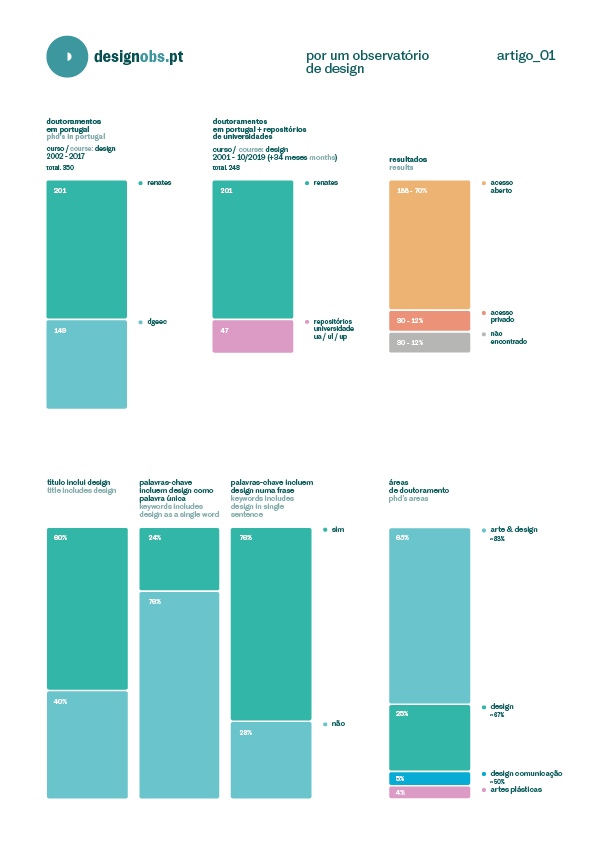Introduction
Design is recognized as a key factor of innovation and competitiveness (European Commission, 2013). European countries i.e. UK, Denmark, are making efforts to observe Design to better support policy making, and develop design-driven actions (Whicher et al., 2012, 2018). Whicher’s model – an important backbone to understand the European Design System (2012, 2016) – is being infused in various countries to leverage the discipline (Whicher et al., 2018). Despite external incentives, Design has not been an explicit part of Portuguese political strategies nor an area of investment. Mateus and Associates (2016) emphasize the importance of Creative industries – which include Design – for the Portuguese GDP (3,7%) but key governmental strategies lack political actions to promote Design as an innovation factor in the country (ex. Conselho de Ministros, 2018).




